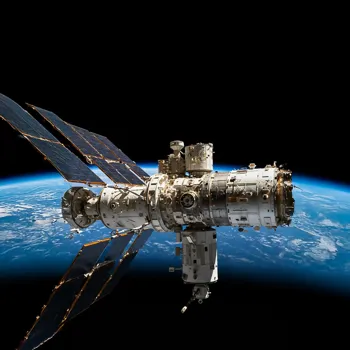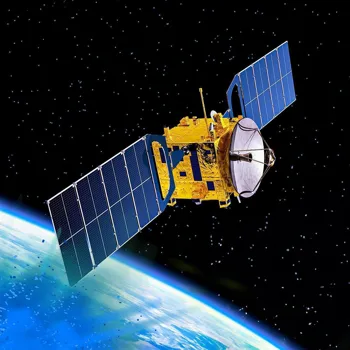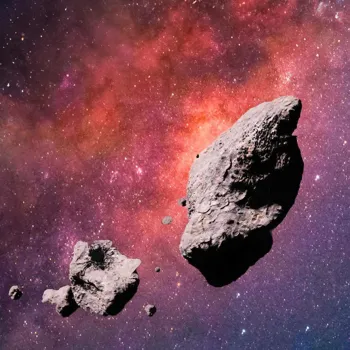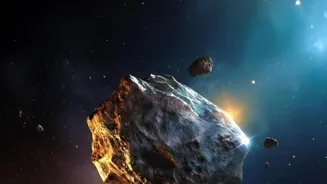India's Space Ambitions at Risk: The Menace of Space Debris. Delve into the threat jeopardizing space missions worldwide
India's burgeoning space program is reaching for the stars, with ambitious missions
planned to the Moon and beyond. However, a less glamorous, yet equally important, aspect of space exploration lurks in the shadows: space debris.

This orbiting junk poses a significant threat not only to India's assets in space but to all nations reliant on satellites for communication, navigation, weather forecasting, and national security.
Understanding the science behind space debris and the associated risks is crucial for ensuring the sustainable use of outer space.
Space debris poses catastrophic threat due to cascading collisions
Space debris consists of defunct satellites, discarded rocket stages, fragments from collisions, and even flecks of paint.
Traveling at incredible speeds – often exceeding 17,500 miles per hour – even a small piece of debris can inflict catastrophic damage upon impact with a functioning satellite or a spacecraft.
The problem is compounded by the "Kessler Syndrome," a scenario where collisions generate more debris, which in turn increases the likelihood of further collisions, creating a cascading effect that could render certain orbital regions unusable.
India, with its increasing number of satellites and launch activities, is particularly vulnerable to this growing threat, impacting various sectors like agriculture, disaster management and communications. This cascading effect is the crux of the whole issue.
Complex science of tracking space debris for collision prevention
The science behind tracking and mitigating space debris is complex. Scientists employ ground-based radar and optical telescopes to monitor the movement of larger debris objects. However, tracking smaller pieces, which are still dangerous, remains a challenge.

The data collected is used to predict potential collisions, allowing satellite operators to maneuver their assets to avoid impact. Sophisticated software models are used to understand debris distribution and predict future growth.
The challenges also includes the fact that some debris are too small to track by current technologies, but have to be taken into account.
Risks of space debris on satellites and missions, costly and disruptive
The risks associated with space debris are manifold. A direct hit on a satellite can knock it out of service, disrupting essential services and causing economic losses. Repairing or replacing damaged satellites is costly and time-consuming.
Space debris also poses a threat to manned space missions, requiring astronauts to take evasive maneuvers to avoid collisions. Furthermore, falling debris can re-enter the Earth's atmosphere, potentially causing damage on the ground, although the risk of such an event is statistically low.
The whole issue makes the investments obsolete.
India joins global efforts to combat space debris; ISRO implements measures and collaborates internationally
India is actively involved in international efforts to address the space debris problem.

The Indian Space Research Organisation (ISRO) has implemented measures to minimize the generation of debris during its missions, such as passivating satellites at the end of their lives (depleting residual energy sources) and designing rockets with minimal debris release.
ISRO also participates in international forums, such as the United Nations Committee on the Peaceful Uses of Outer Space (COPUOS), to develop guidelines and best practices for space debris mitigation.
In addition, India is investing in indigenous capabilities for tracking and monitoring space debris. In the fight against space debris, one nation cant do it alone.
India must strengthen efforts to address space debris through technology, cooperation, and awareness
Looking ahead, India needs to strengthen its efforts to address the space debris problem.
This includes investing in advanced tracking technologies, developing active debris removal technologies (such as nets or harpoons to capture and de-orbit defunct satellites), and promoting international cooperation on space debris mitigation.
By taking proactive measures, India can safeguard its space assets, ensure the long-term sustainability of its space program, and contribute to the global effort to maintain a safe and accessible space environment.
Its also important to increase public awareness of the dangers posed by space debris and to empower future generations of space scientists and engineers to develop innovative solutions to the problem. International collaboration is a must to solve this issue.













